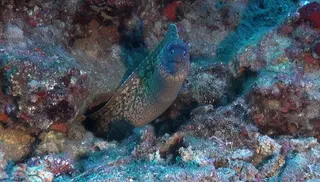The “Deep-Sea Lebanon” The project, launched in 2016, is being executed based on a request for partnership sent from the Lebanese Ministry of Environment in order to carry out biodiversity field surveys in the deep sea in Lebanon, following the adoption by the Lebanese Government of the Lebanon’s Marine Protected Areas Strategy in 2012, in which four sites in the deep sea were identified as potential MPAs and need further scientific studies for their declaration.
The overall aim of the “Deep-sea Lebanon project” is to increase the surface of MPAs in Lebanon with the intention of generating suitable management plans to maintain those protected zones. This objective will be achieved through a range of activities that go from scientific data collection to stakeholder workshops and policy briefings, in order to promote the restoration and further management of threatened marine ecosystems and species.
The specific objectives and main activities of the project are:
- Objective 1: Increase the surface of MPAs in Lebanon by providing national government and regional bodies with scientific evidence and information collected in the field via at-sea research.
Scientific expedition for data collection; Habitats and species identification; Mapping; Scientific report and pre-selection of MPAs; Communication strategy
- Objective 2: Contribute to reaching Aichi Target 11 by 2020 and strengthen the natural marine biodiversity corridor in the Eastern basin, supported by proper ecosystem-based management measures.
Preliminary management guidelines; Stakeholder workshops and meetings; Management plans; MPA designations follow-up and advocacy.
According the Lebanon’s Marine Protected Areas Strategy, Lebanon could envisage two options: declare the whole area under 1,000 m in the territorial waters as an MPA or declare the four features presented above as four MPAs as a deep-sea network with a common management plan.
- Funded by: MAVA Foundation
- Lead by: OCEANA
- In cooperation with: IUCN and UNEP/MAP-SPA/RAC as executing partners; the Lebanese Ministry of Environment as key member of the Steering Committee; and ACCOBAMS, GFCM and CNRS-L as Supportive Partners.



